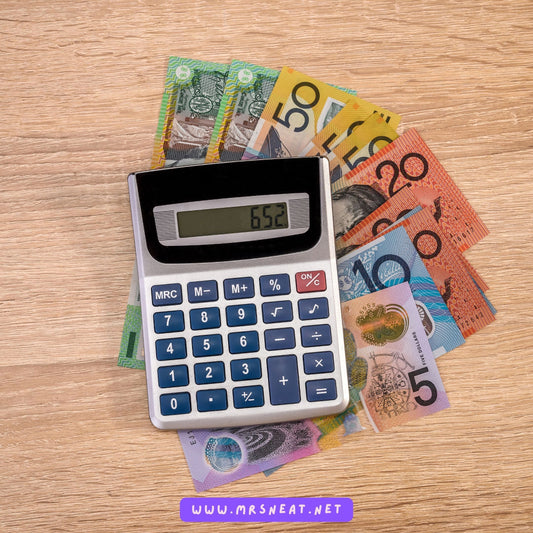
Secure Your Future: The Power of Building an Emergency Fund
maris wariShare
Life is unpredictable, and unexpected events can arise at any time, leaving us feeling vulnerable and financially strained.
This is where an emergency fund can play a crucial role.
Having an emergency fund is essential for every individual, irrespective of their financial status.

In this article, we will explore what an emergency fund is, who needs one, why it is essential for everyone, when we need it and step-by-step guide to building an emergency fund.
Additionally, we'll provide you with a printable savings tracker to help you stay organized and motivated in reaching your emergency fund goals.
What is an Emergency Fund?
An emergency fund is a dedicated savings account set aside to cover unexpected expenses, such as medical bills, car repairs, job loss, or any other unforeseen events that disrupt your normal financial flow.
It acts as a financial safety net, providing you with peace of mind during challenging times.
Who Needs an Emergency Fund?
Contrary to popular belief, emergency funds are not only for those in low-income brackets; they are crucial for everyone.
Life's uncertainties can impact anyone, regardless of their financial stability or income level.
Whether you're a student, a working professional, a business owner, or a retiree, having an emergency fund is essential.
Why Do You Need an Emergency Fund?
1. Unforeseen Expenses
Unexpected car repairs, medical emergencies, or home repairs can happen at any time.
Without an emergency fund, you may be forced to rely on credit cards or loans, which can lead to debt accumulation and high-interest payments.
2. Job Loss or Income Reduction
In today's uncertain economic climate, layoffs and salary cuts are unfortunately becoming more common.
An emergency fund ensures that you can maintain your financial obligations, cover essential living expenses, and bridge the gap until you secure another job or stabilize your income.
3. Avoiding Debt
When faced with a financial emergency, using credit cards or loans as a source of funds can quickly lead to debt accumulation.
By having an emergency fund, you can avoid going into unnecessary debt and maintain your financial stability.
4. Peace of Mind
Knowing that you have a financial safety net can alleviate stress during turbulent times.
Having an emergency fund allows you to focus on resolving the problem at hand without worrying about your financial obligations.
5. Opportunity Cushion
Having an emergency fund not only protects you during challenging times but also provides the flexibility to seize opportunities that may arise.
It could be investing in a business venture, furthering your education, or taking advantage of a discount on a major purchase.
How Much Should You Save in an Emergency Fund?
The general rule of thumb is to aim for three to six months' worth of living expenses.
However, the ideal amount can vary based on individual circumstances.
Factors such as job stability, monthly expenses, family size, and healthcare needs should be taken into consideration when determining the appropriate size of your emergency fund.
Identifying When You Might Need an Emergency Fund
1. Unpredictable Income
If your income fluctuates, whether due to self-employment, freelancing, or commission-based work, having an emergency fund is essential.
It acts as a buffer during lean months and ensures you can cover your basic expenses.
2. Lack of Job Security
If you work in an industry prone to job instability, such as seasonal work, contract-based assignments, or an industry affected by economic fluctuations, having an emergency fund is vital.
It provides you with financial security during periods of unemployment.
3. Financial Dependents
If you have dependents relying on your income, such as elderly parents, children, or other family members, having an emergency fund is crucial.
It ensures you can continue to meet their needs even during unexpected situations.
4. High Debt Load
If you are burdened with significant debt, such as student loans, credit cards, or mortgages, having an emergency fund is especially important.
It helps prevent you from relying on additional credit or sinking further into debt during emergencies.
Related content;
- Fun and Creative Savings Challenges
- Investing for Financial Freedom: Where to Start and How to Succeed
- Mastering the Art of Saving : A Key to Financial Freedom
Step-by-Step Guide to Building an Emergency Fund:
Step 1: Set Clear Goals
Determine your target emergency fund amount based on your monthly expenses and financial obligations.
Aim to save three to six months' worth of living expenses as a starting point, but adjust this based on your individual circumstances.
Step 2: Create a Budget
Analyze your income and expenses to identify areas where you can cut back and allocate funds towards saving for your emergency fund.
Create a realistic monthly budget to track your progress and identify areas where you can save more.
Step 3: Automate Savings
Set up an automatic transfer from your checking account to a dedicated emergency fund savings account each month.
This ensures consistency and eliminates the temptation to spend the money elsewhere.
Step 4: Reduce Expenses
Look for ways to minimize unnecessary spending.
Cut back on dining out, cancel unused subscriptions, and seek out cheaper alternatives to save more money each month.
Step 5: Increase Income
Explore ways to boost your income to expedite your emergency fund growth.
Consider taking on a side gig, freelancing, or selling unused items to generate additional funds.
Step 6: Hold Yourself Accountable
Use a savings tracker, such as the printable we provide, to track your progress.
Update it regularly to visually see your savings grow, which can help motivate you to stay on track.
Building an emergency fund is a vital step towards financial security.
Knowing when you need one and following a step-by-step approach can help you achieve your goals effectively.
Utilize our printable savings tracker (here) to monitor your progress and stay motivated throughout your emergency fund journey.
Start today and provide yourself with the financial safety net you deserve.


 https://www.linkedin.com/in/mariswari/
https://www.linkedin.com/in/mariswari/



